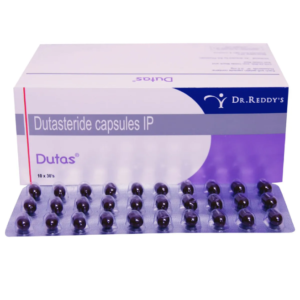Naproxen 500mg (Naprosyn) Tablets are nonsteroidal anti-inflammatory drugs (NSAIDs) commonly used to relieve pain, reduce inflammation, and lower fever. This medication works by inhibiting cyclooxygenase (COX) enzymes, which play a crucial role in the synthesis of prostaglandins—compounds that mediate inflammation and pain in the body. Naproxen is effective for managing pain associated with various medical conditions.
Indications:
Naproxen 500mg is indicated for the treatment of:
- Arthritis: Relief of pain and inflammation in osteoarthritis and rheumatoid arthritis.
- Acute Gout: Management of pain and inflammation during acute gout attacks.
- Musculoskeletal Disorders: Treatment of pain from sprains, strains, and other injuries.
- Dysmenorrhea: Relief of moderate to severe menstrual cramps.
- Ankylosing Spondylitis: To alleviate pain and stiffness in the spine.
- Mild to Moderate Pain: Such as headaches, toothaches, and postoperative pain.
Dosage and Administration:
- Recommended Dosage: The typical adult dosage is 500mg initially, followed by 250mg every 6 to 8 hours as needed. Do not exceed 1500mg in a 24-hour period unless directed by a healthcare provider.
- Administration: Naproxen tablets should be taken with food or a full glass of water to minimize gastrointestinal irritation. It is advisable to avoid lying down for at least 10 minutes after taking the medication.
Contraindications:
- Hypersensitivity to naproxen or other NSAIDs.
- History of asthma, urticaria, or allergic-type reactions following the use of aspirin or other NSAIDs.
- Active gastrointestinal bleeding or peptic ulcer disease.
- Severe renal or hepatic impairment.
Precautions:
- Gastrointestinal Risk: NSAIDs, including naproxen, can increase the risk of gastrointestinal bleeding, ulceration, and perforation, particularly in older adults or those with a history of gastrointestinal issues.
- Cardiovascular Risk: Long-term use of NSAIDs may elevate the risk of serious cardiovascular events, including heart attack and stroke.
- Renal Function: Caution is advised in patients with pre-existing renal impairment, as NSAIDs can further compromise kidney function.
- Pregnancy and Breastfeeding: Naproxen is generally not recommended during the third trimester of pregnancy and should be used with caution during breastfeeding.
Side Effects:
Common side effects may include:
- Nausea and vomiting
- Stomach pain or indigestion
- Dizziness or headache
- Constipation or diarrhea
- Heartburn
Serious side effects (seek immediate medical attention if these occur):
- Signs of gastrointestinal bleeding (e.g., black, tarry stools, vomiting blood)
- Severe allergic reactions (e.g., rash, difficulty breathing, swelling of the face or throat)
- Chest pain or shortness of breath (potential signs of heart attack or stroke)
- Symptoms of liver or kidney problems (e.g., yellowing of the skin, dark urine, decreased urination)
Drug Interactions:
- Naproxen may interact with anticoagulants (e.g., warfarin), other NSAIDs, corticosteroids, and certain blood pressure medications (e.g., ACE inhibitors).
- Always inform your healthcare provider about all medications, supplements, and herbal products you are taking to avoid potential interactions.
Storage:
- Store at room temperature (15-30°C or 59-86°F) in a dry place, away from direct light and moisture.
- Keep out of reach of children.
Packaging:
Naproxen 500mg Tablets are typically available in blister packs or bottles, with quantities based on the prescribed treatment regimen.





Reviews
There are no reviews yet.